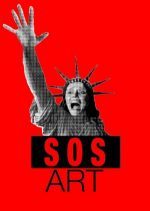“I grew up inside a Christian bubble,” says Reverend Troy Bronsink. “My parents, Evangelical Christians, raised me in that tradition, and all I knew growing up were the youth groups of the typical Bible belt megachurch I attended in Charlotte, North Carolina, and who all shared my same subculture.”
Bronsink’s parents were both very religious and his father, a generous and compassionate man, would read the Scriptures at the beginning and the end of every meal. He, himself, as a teenager, would have many existential questions, the answers to which he would often find in religion and Christian theology.
He was also very early on service-oriented, always helping others whenever needed.
“We would help widows and elderly near us with their yardwork, build playgrounds in inner city neighborhoods, and accompany my father most Saturday morning to feed the homeless downtown Charlotte.”
Bronsink’s first exposure to difference came through his church who decided to partner with an African-American church in a low income neighborhood of the city, and create exchanges between their respective members’ families. Bronsink’s family partnered with the Miller’s whose son, Antoine, same age and same grade as him, would visit on weekends.
“I would also go to Antoine’s house,” says Bronsink. “I heard for the first time music by Stevie Wonder, ate different types of food… It surely helped develop why now I feel at home in different communities.” “And for Antoine’s parents and mine to find faith as common grounds for doing this cross-cultural work was fantastic,” he adds.
Bronsink went to a religious school where emphasis was on excellence and on righteousness leading a good life, with the hope to create a safe container for growing kids.
“There was no emphasis on social justice per se,” he says, “but rather a narrative that spoke of the love of God, of God’s presence and Grace among us…”
For college, he selected Liberty University, Jerry Falwell’s right-wing Christian college in Lynchburg, VA, to study religion. He had already decided by the end of high school to be in church ministry and wanted to excel inside the Evangelical spaces.
In his freshman year of college an awakening/conversion happened to him that changed his outlook on things and deepened his understanding of his faith. At a Washington, DC political march for the right to life, he and other college Republicans were kicked, pushed and injured by a group of angry counter protesters.
“We felt vindicated, proven righteous that people did not like us,” says Bronsink. “But this is also when my heart started to break, asking myself whether my feelings were consistent with the loving presence of God I had known all my life.”
From that point on Bronsink associated less and less with the far right, feeling separation between the values of winning and his ability to remain in loving relationships with others. He started then working with Young Life, a non profit organization, to build rapport with kids who were not in Christian schools, appreciating diversity and associating with individuals outside his bubble. This led him to realize that God was everywhere and that what counted was to be open to God’s presence.
He started at the same time to write and perform socially conscious songs that explored otherness. They told stories from underneath, of the unlikely folks, questioning who was accepted and included, and how we love.
After college, Bronsink continued working for Young Life, but rid of his earlier anxiety to win others over to Christianity. He had been reading Christian mystics, in particular Henri Nouwen and Frederik Buechner, and realized that the brave act is to vulnerably love someone and believe that this someone is loved. This is when he also married and moved with his wife to Spokane, WA.
In Spokane, Bronsink met and was confronted by others such as Buddhists, LGBTQ individuals, minorities, etc. whom he found, like him, connected to God and expressing God’s presence in their daily life; also to activists involved in local and international justice issues. He also came across a liberal Presbyterian tradition that he found much more generous and accepting of others.
“This changed my view that there always has to be one who is right,” he says. “Instead, I learned a new approach on how to understand and include diversity, appreciating at the same time the strong connection to social justice of my faith. It was a radical shift from the bubble of Evangelicals I had known earlier.”
In 2002, and after living 2 years in Spokane, Bronsink decided to join the Presbyterian Divinity school in Atlanta, GA, in order to become a minister. His studies opened further his eyes to a different and more encompassing reading of the Scriptures. His teachers, and in particular Walter Brueggemann, introduced him to liberation and Biblical theology, to the pronounced presence of the divine in places of suffering and oppression, and to the importance of seeing the many point of view stories embedded in each story of the Gospel.
In Atlanta, Bronsink and his wife moved to an intentional mixed income neighborhood and contributed to the building of the local community. They worked closely with an inner city church attended by homeless, individuals with disability, chronically poor; developed friendships with different people, vulnerable and oppressed; participated in various social justice marches.
After finishing seminary, Bronsink worked as a community developer, shared a co-living house with three other families, and organized regular meals inviting individuals across races, ages and background differences to meet and get to know each other. Ordained a minister, he formed “Neighbors Abbey,” a Presbyterian community development church, where he pastored for 4 years, living the Good Samaritan’s life with others, engaged daily in social actions, visiting prisons, organizing with neighborhood associations to raise social and political consciousness. The area of Atlanta where he and his family lived, however, and after the economic crash of 2007, was becoming rough and somewhat deserted with houses boarded up, vandalism, drug and sex trafficking increasing. His family having been exposed to violence and funds shrinking, Bronsink decided to leave the area and to move to Cincinnati, OH; It was 2012.
For a while, he felt defeated and discouraged, and he somewhat retreated; but this is also when he discovered the Christian mystics, the Desert Fathers and Mothers, St Teresa de Avila, St John of the Cross. They brought him back to an interior and meditative practice, to non attachment, to cultivating God’s presence.
“I wanted to be successful at changing the world,” he says, “and it became very tiring. Growing more aware of the spiritual, it became obvious to me that the contemplative not only informs but also sustains the action, that they strengthen each other, and that they are both needed.”
Bronsink started then thinking of a space that he would create to bring people together, a multi-faith, inclusive and across traditions space which will bridge contemplation and action, energize and uncover creativity and provide individuals with the skills needed to discover themselves and unfold. With the blessing of the Presbyterian church which helped him take off, he founded this gathering space that he called The Hive.
“It is a place where people come to become and grow, where they find spiritual rootedness, connect to each other, work at the front of justice but also at the interior front of love,” he states.
The Hive, which has now been in existence for 2 years in the Northside neighborhood of Cincinnati, offers classes, workshops, lectures, consulting services, retreats. They focus among others on art, poetry, yoga, resilience and trauma, community organizing and how to create change, finances and budgeting… The many other activities include exercises of vulnerability, learning how to be transparent, to share struggles; and various meeting opportunities… Recently a membership program was added in order to facilitate, for participants, continuity in their learning and an ongoing reciprocal support in their growth.
“While I am trained and ordained in the Presbyterian tradition, my passion for The Hive is deeply engrained in all traditions,” clarifies Bronsink.
Bronsink still ministers as a pastor to a small Presbyterian church in Bond Hill, but he now most identifies with the mystic tradition, a wisdom lineage that understands a similarity between the Protestant and Catholic, a realization that we are called to a deeper consciousness, to a place where we actively participate with God in the world.
“This is a leap of faith from earliers form of Presbyterianism that say that community begins and ends with likemindedness about God,” he says.
Bronsink likes to quote Meister Eckhart, the 13th century German mystic theologian, who said: “The eye through which I see God is the same eye through which God sees me.” And for him, we need to always widen the aperture, letting love, generosity and grace flow for us and all others. This is what Bronsink himself practices in his daily life, but also what he would like to help all others achieve, irrespective of their religion, gender, age, background… Summing up his faith, he adds:
“The story of faith I am drawn to is not a transactional freedom from separation, but having “the mind of Christ,” releasing my self-serving mindedness into more and more inclusion, social-participation and connection to the presence of God, that is everywhere.”
What is the Presbyterian church Presbyterianism,part of the Reformed tradition within Protestantism, became a distinct Christian movement during the 16th-century Protestant Reformation. As the Catholic Church resisted the reformers, several different theological movements splintered from the Church and bore different denominations. Presbyterianism was especially influenced by the French theologian John Calvin, credited with the development of Reformed theology, and by John Knox, a Scotsman and a Roman Catholic Priest, who studied with Calvin. The Presbyterian church traces its ancestry back primarily to England and Scotland. Presbyterianism derives its name from the presbyterian form of church government, governed by representative assemblies of elders. Its theology typically emphasizes the sovereignty of God, the authority of the Scriptures, and the necessity of grace through faith in Christ. Presbyterians hold the position that there are only two sacraments:
-
Baptism, in which infants and unbaptized adults are baptized by Aspersion (sprinkling) or Affusion (pouring), rather than by Immersion.
-
The Lord's Supper (aka Communion), in which Christ is present in the bread and wine through the Holy Spirit.
Presbyterians express their faith in the form of "confessions of faith," which represent a community rather than an individual understanding of theology. They see education as necessary and put an emphasis on equal education for all people, so that they can serve the world in God's name. In their decisions they follow a Majority Rule, believing that the Holy Spirit lives in individuals but works through the community. Presbyterians generally exhibit their faith through acts of generosity, hospitality and the constant pursuit of social justice and reform.




June 12, 2018 at 9:48 am
I find it it very inspiring that Bronsink learned from events in his life, changed for the better, and adapted to reach more across all religious lines. Few people end up changing their view points in life, and even less when they get attacked (as Bronsink was during the march for the right to life). It requires a lot of intelligence and humility to take it all in and change for the better.
Bravo Saad Ghosn for the equally inspiring set of articles and the great idea to shed light on Bronsink and other great men and women out there!
LikeLike
June 12, 2018 at 9:52 am
tx PC!! ur perceptive remarks are always very appreciated and a positive addition to this series!! sg
LikeLike